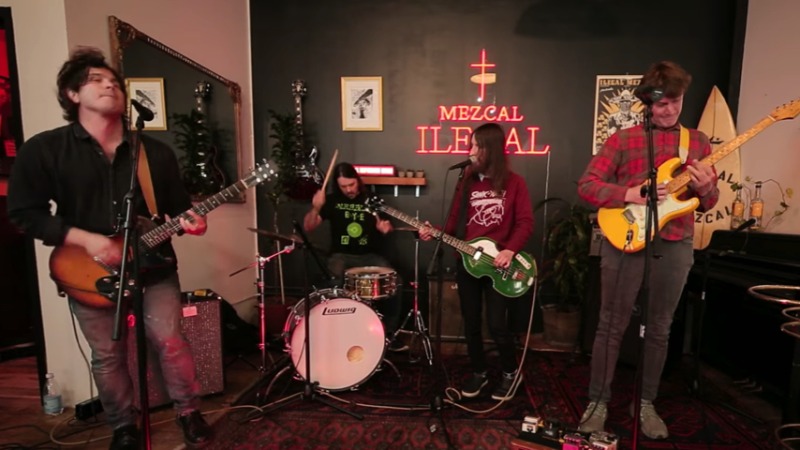Of Montreal’s Kevin Barnes: The complete Paste interview
Paste: Do you feel like your friendships with all these former bandmates have endured that transition, or has it been difficult?
Barnes: It’s definitely been difficult with some people more than others, but I can totally understand any sort of problem that arose from that. And I love everyone that plays with me, and I really support them and everyone is so talented, and they all have their own projects and I totally want to encourage them—like, Jamie is an amazing songwriter and an amazing singer and performer. And Bryan [Poole], and Davey, and Dottie [Alexander] are all fantastic composers as well as performers, and it’s pretty amazing that they’ve been with me all this time and have gone through all these different phases with me, musically, and every time have been able to adapt and get excited about it, and encourage me and basically stay connected through all of it. It’s been pretty amazing. We’re like a family, and you can’t divorce your family. I think we’re like that—we’re like brothers and sisters.
Paste: I read an interview where you talked about the trappings of the Elephant 6 Collective and some of its unwritten rules. Tell me what those rules were, and about breaking free from them.
Barnes: All of it was just my perception of what the rules were; there was no manifesto we all had to sign or anything like that, but there was a spirit of that time, and I started to go this other direction. I had these weird hang-ups that maybe I created myself—this idea that nothing had any value unless it was recorded on an analog tape machine. I couldn’t stand any contemporary bands—I never listened to any of them, really, except for the Elephant 6 bands. I was living in a self-imposed fascist state. I had all these rules about what was good and what was bad, and I was really critical of other bands, and just really stupid. And I know it sounds clichéd, but I can’t help but think that [getting away from that mindset] was influenced by 9/11. After 9/11, it was a universal thing in the United States where everyone felt like they need to connect with other people more. It really influenced me in that way. [Suddenly], I wanted to listen to and support contemporary bands. I wanted to feel a part of my time, my generation, and not be so obsessed with ’60s music, and music made by dead people. I’d always loved dance music, but it was kind of taboo to use a drum machine in the Elephant 6 world. Obviously studio trickery was encouraged, but you probably shouldn’t do anything you couldn’t pull off live. Somehow it felt like disco or electro-pop or attitude music wasn’t that cool. [There were] just all these really weird rules I thought existed and that probably don’t exist at all. I started getting into electronic pop music and really wanted to make this weird disco hybrid—you know, pulling from all these different influences. I started getting turned on to ’70s Afrobeat and soul and dub and Jamaican music, and I got all these Soul Jazz and Trojan reissues, and rediscovered my love for Prince and Stevie Wonder, Sly & the Family Stone and Curtis Mayfield, and that’s what brought me to where I am now. I don’t listen to The Kinks anymore—I still like that stuff, but I’d never really think to put on a Kinks record.
Paste: So when you did Skeletal Lamping, you recorded with the touring band and then decided to go back and do it over by yourself?
Barnes: No, nothing was recorded with the touring band. Well, there was one song that I had done a demo of. I guess it wasn’t even really a demo because it turned out to be the version I used. It was just an idea, kind of an experiment. We went into a good studio in town ’cause we’d been playing the song live a bunch, and got the band to play the same parts they’d been playing live. Even though the engineer was great, and it was a good experience, I felt like it was lacking something, that personal touch or whatever. That’s the problem I think when bands record in big studios, it can become a bit samey, there’s drum sounds that, like, you’ve heard them before. I guess I’m just so comfortable with my setup now and the way I record bass, and the way I record drums sounds and vocals. And [the bigger studio] was kind of expensive, and I realized that if I made a whole record that way, I could make five records on my own. We actually used some of the parts from that [full-band] session. And we did do a band project where everyone contributed song ideas and wrote their own parts. We have this band called Instant Witch.
-

-

-

-

-

-

-

-

-

-

-

-

-

-

-

-

-

-

-

-

-

-

-

-

-

-

-

-

-

-

-

-

-

-

-

-

-

-

-

-








































